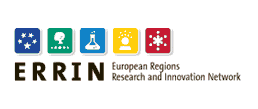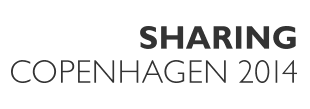SUSTAINABLE INNOVATION 2014
Cities & Regions as Catalysts for Smart & Sustainable Innovation
Part of the ‘Towards Sustainable Product Design’ series of conferences
19th International Conference
3rd-4th November 2014
KADK
Copenhagen
Denmark
The Centre for Sustainable Design ® at UCA, UK
VENUE PARTNER STRATEGIC PARTNERS
Climate KIC
European Environment Agency
ERRIN
Knowledge Transfer Network
R20 Regions of Climate Action
Sharing Copenhagen 2014
Sustainable Innovation 2013: Key Lessons
Collaboration, Co-creation & New Business Models
Martin Charter, Director, The Centre for Sustainable Design @ UCA
- Foresight: adaption to climate change, circular economy & eco-innovation are now being hardwired into future European industrial
policy scenarios; with thinking on eco-innovation now breaking away from the traditional definition of eco-industries based on ‘end of pipe’
environmental technologies towards a more horizontal view based on a pervasive ‘greening of industry’ & the development of a diverse array of
eco-innovative products, services & technologies - Circular Economy: leading companies are implementing ‘design for disassembly’ & ‘design for upcycling’ in product design & development e.g. Kyocera (printer cartridges) & Globe Hope (clothing) but are finding a lack of infrastructure, knowledge, networks, skills, etc to support these initiatives; where is the ‘smart (closed loop) grid’ discussion to enable the Circular Economy? & how should it be developed?
- Disruption: new players entering existing markets with disruptive eco-innovative technologies can experience a very bloody fight with aggressive responses from
incumbents; NestLabs highlighted the need for significant financial resources to fight legal battles, the importance of design, monitoring & quickly responding to customer feedback & creating
a ‘can do’ mindset; Globe Hope & ZedFactory highlighted the need to stick to core values, the importance of personal resilience, having a solutions oriented mindset (to problems) & a lack of
public policy support for sustainable & eco-innovators - Business Models: an emerging question is, do green business models actually exist? & perhaps that the question needs to be re-framed; growing energy, material & water challenges are leading a number of companies to adapt their business models; many eco-innovative SMEs have a product/technology push mindset & lack sound business models, so there is a need for widespread dissemination of business model thinking amongst sustainable & eco-innovators; more strategically, ‘green ventures’ units are emerging within a number of leading companies e.g. Patagonia & Nike stimulating & financially pump-priming new & potentially disruptive sustainable & eco-innovative start up businesses
- Democratisation: stronger ‘grassroots innovation’ is emerging through ‘people power’ facilitated by social networks, & information & communication technology (ICT) which is characterised by growing trends in the use of ‘open innovation’ including crowd sourcing ideas & funding, & the rise of makers & fixers
- Collaboration: open innovation & crowdsourcing approaches are being used to co-create new businesses with collaboration & partnership being essential; developing & building relationships & trust will be viewed as as central principles to the co-creation of businesses
- Freedom: breaking away from conventional thinking patterns & practice needs organisations, groups & individuals that that can operate outside ‘the system’; an ability to experiment & ‘break the rules’ will be increasingly important; however, ‘breakaway organisations’ e.g. Enviu from the Netherlands that operate more openly, un-conventionally & un-reasonably will still need to have well organised structures & systems especially related to funding & project delivery
- Demonstration: it was highlighted that people need access to real, physical demonstrations of more sustainable futures to enable them to ‘see’ a way forward, this was well illustrated by Bright Green Island (a ‘living laboratory’ for sustainable solutions in Denmark), Pines Calyx (‘cradle to cradle’ conference centre in UK) & Village Impact (socially designed and innovated kitchens in Malawi)
- Systems: to drive sustainable & eco-innovation there is a need to operate in parallel at grassroots & system levels, & this requires business, civil society & government to develop better ways of working together – however, presently sustainable or eco-innovation seems to be emerging from civil society & business, with government’s role being seen as increasingly unclear
- Capitalism 2.0: green growth & green economy is permeating global policy thinking however ‘grassroots innovation’ is emerging from civil society & entrepreneurs rather than big business or NGOs; alongside this, new business models are emerging where business success & performance are not just being judged by financial success but also by positive environmental & social impact
© Martin Charter 2013 mcharter@ucreative.ac.uk
Sustainable Innovation 2014 click for more information
Contact
For more information on Sustainable Innovation 2014 please contact:
Professor Martin CharterDirector
The Centre for Sustainable Design ®
University for the Creative Arts
Farnham Campus
Farnham
Surrey
GU9 7DS
UK
Tel: + 44 (0) 1252 892772
Fax: + 44 (0) 1252 892747
Email: mcharter@ucreative.ac.uk














